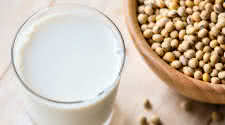Men Require Calcium Supplementation

Advanced Health & Supplement Science
For the past several years, medical professionals have advised women to consume adequate calcium to prevent osteoporosis. The absorption and retention of calcium in women is also related to estrogen levels, which explains why the incidence of osteoporosis accelerates after
menopause, since that's when estrogen levels decline in women. Besides taking calcium supplements, weightlifting can also stimulate calcium retention in bone, thus increasing bone density. Calcium and associated synergistic nutrients (such as magnesium and vitamin D) combined
with exercise is considered the best way to prevent the later development of osteoporosis in women.
But what about men? They also need calcium, which increases bone density, and is needed for nerve-conduction and muscle-contraction processes. In fact, the precise level of calcium in the blood (about 1% of the total calcium found in the body) is closely monitored, and the body
has several ways to maintain this vital serum level. Most of these fail-sale medianisms involve leaching calcium from bone into the blood through various hormones, such as parathyroid hormone. High blood acidity is known to escalate calcium excretion. This explains why high-protein
diets are often linked with increased calcium losses. Although dietitians often mention calcium lass as one of the dangers of high-protein diets, research shows that this effect occurs only in the absence of dietary phosphate, which, as luck would have it, is abundant in most
high-protein foods.
But while weight training is good for bone health, this form of exercise is anaerobic. this means that acidic metabolic waste products, such as lactic acid, are produced in the course of such exorcise. And wouldn't this increased acidity lead to calcium loss? It certainly does,
according tea just-published report in the Journal a! Applied Physiology (83:1159-63, 1997). This study examined the effect of weight training on calcium loss in 10 men. The research concluded that after exercise, the men exhibited a significant loss of calcium as measured in their
urine, which was attributed to "severe metabolic acidosis."
The suggested mechanism behind this increased calcium excretion in men during weight training is acid-induced lass of reabsorption of calcium by the kidneys. Another factor involved elevated levels of calcium in the blood (the buffering effect), which in turn decreased parathyroid
hormone. The source of the calcium these men excreted was thought to be bone. Another thing to consider is that certain diets that lead to increased ketones (byproducts of fat metabolism), such as extreme low-carbohydrate diets, also elevate blood acidity, since' ketones are
themselves acids, This effect, however, is rarely a problem if mineral supplements are consumed as they usually are during such diets.
Thus, while women must be especially conscious of calcium intake, men need to ensure that they, too, take in sufficient amounts of this vital mineral, since it appears that men lose calcium every time they train. If you don't consume sufficient calcium-laden dairy products, take
a quality multimineral supplement.